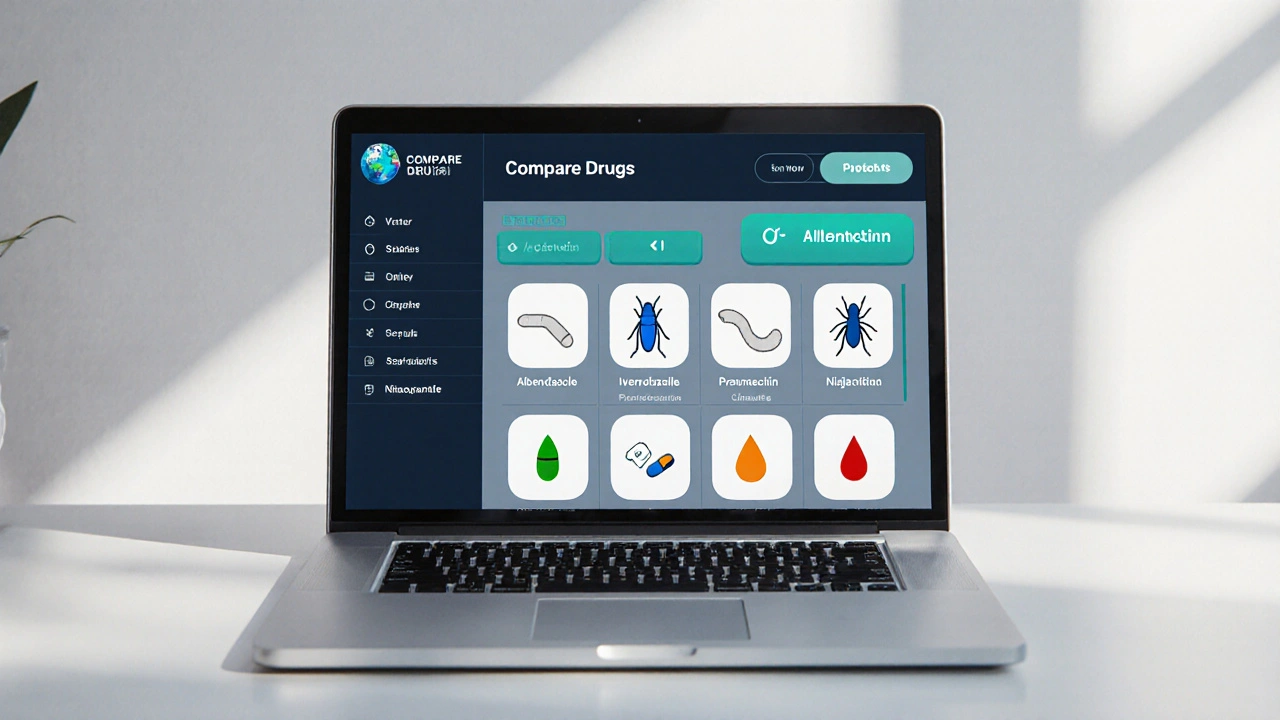Anti-Parasitic Drugs: What They Are and How They Work
When dealing with anti-parasitic drugs, medicines designed to eliminate or control parasites that infect humans or animals. Also known as anthelmintics, they are essential for preventing disease and keeping you healthy. Albendazole targets roundworm, hookworm, and tapeworm infections is a staple in many treatment plans, while Ivermectin acts on ectoparasites like lice and scabies as well as some internal worms offers a broad spectrum of action. These drugs belong to the larger group of anthelmintics that require careful dosing to avoid side effects and resistance. Understanding how each medication works helps you pick the right one for a specific parasite.
Key Drug Categories and Their Typical Uses
Anti-parasitic drugs can be split into a few practical categories. Broad-spectrum anthelmintics such as Albendazole cover many intestinal worms, making them a go‑to for mixed infections. Narrow‑spectrum agents like Praziquantel is highly effective against tapeworms and flukes focus on specific parasites that cause liver or bladder issues. Topical treatments, for example crotamiton (marketed as Eurax), target skin‑dwelling parasites such as scabies, providing quick relief from itching. Each category requires different administration routes—oral tablets for internal worms, creams for skin infestations, and sometimes injectable forms for severe cases. Choosing the right category depends on the parasite type, infection location, and patient factors like age or pregnancy.
Safety and efficacy go hand‑in hand with anti‑parasitic therapy. Proper diagnosis ensures you don’t waste money on the wrong drug, and correct dosage prevents adverse reactions like nausea, liver stress, or neurological symptoms. Many of these medicines have been studied for resistance patterns, so rotating drugs or combining them (as seen with Albendazole + Praziquantel in some protocols) can keep parasites from adapting. It’s also smart to watch for drug interactions—especially if you’re on other prescriptions such as antacids or anticonvulsants. By staying informed about the specific properties of each drug, you’ll minimize risks and maximize cure rates.
Below you’ll find a curated list of articles that dive deeper into individual anti‑parasitic drugs, compare their pros and cons, and offer practical tips for safe online purchasing. Whether you’re looking for dosage guides, side‑effect profiles, or the latest price‑saving strategies, the posts ahead cover the full spectrum of what you need to know about tackling parasitic infections.
Albendazole (Albenza) vs. Other Anti‑Parasitic Drugs: Comparison Guide
A side‑by‑side comparison of Albendazole (Albenza) with five common anti‑parasitic drugs, covering efficacy, dosage, side effects, cost, and when to choose each option.






